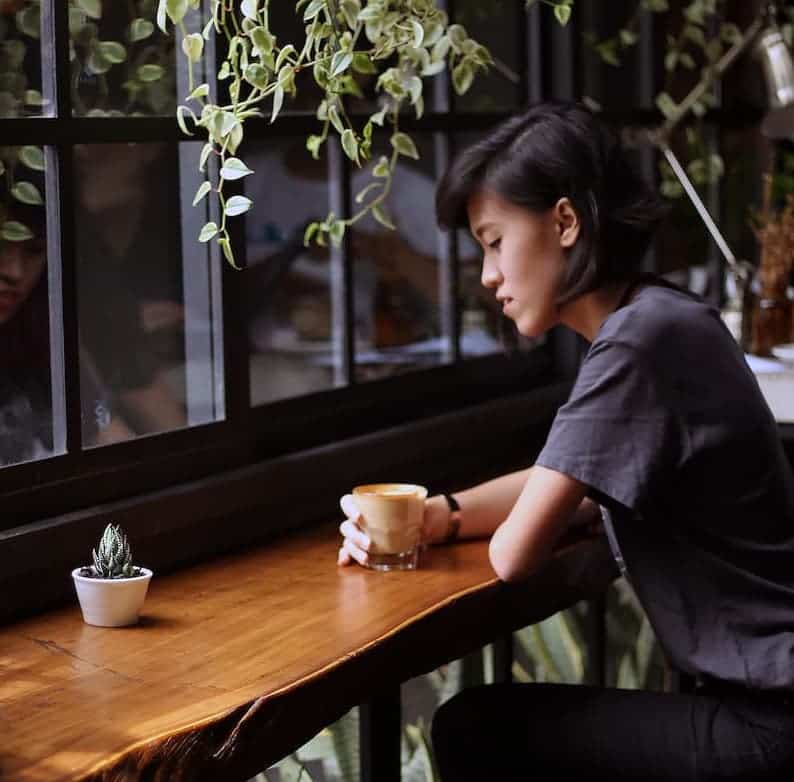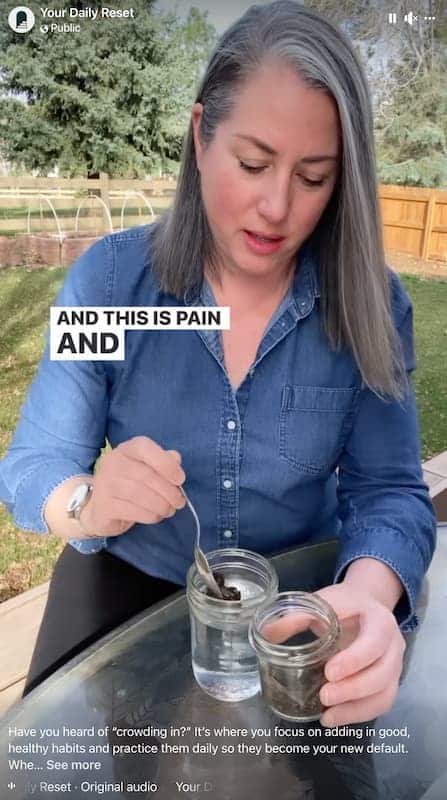Do you struggle to get rid of bad habits, seeming to always falling back into old patterns of thinking or behavior? It’s not your fault. Your brain was designed to think this way! By understanding your biology, you can work with your brain and body to help create better thoughts, behaviors, and habits.
You’re wired to see the negative.

We learn through negative and failed outcomes.
As humans, we tend to remember traumatic experiences better than positive ones. This goes for both physical and emotional experiences. We:
- Recall insults better than praise.
- React more strongly to negative stimuli.
- Think about negative things more frequently than positive ones.
- Respond more strongly to negative events than to equally positive ones.
In fact, about 70% of our thinking is based on negative thoughts. Sounds grim, right? Humans are hardwired to have a negative bias and this is by design: to keep us alive.
This bias toward the negative leads you to pay much more attention to the bad things that happen, making them seem much more important than they really are.
Think about being a small child. The first time you touched a hot pan on the stove you instinctively pulled your hand away. Your body and mind remembered this immediately because an intense feeling was associated with the event and you became wary of pans on the stove.
Having a “felt sense” of this event helped you from getting burned again in the future. The same is true when you are shamed for doing something wrong or a perceived mistake. The feeling is so intense that we build a strong neural network around the emotion and the event.
The negative bias is our tendency not only to register negative stimuli more readily but also to dwell on these events. Also known as positive-negative asymmetry, this negativity bias means that we feel the sting of a rebuke more powerfully than we feel the joy of praise.
You could go to a party and receive 20 compliments yet dwell on the one person who gave you an offhand comment.
Let us introduce you to the idea of Crowding In.

We crowd out what’s not working with all the new and healthy stuff that is working.
It’s where you focus on adding in good, healthy habits and practice them daily so they become your new default.
When we create positive habits, we add them to our daily routines. Since we don’t have the capacity for all of our established daily routines plus new ones, old habits either become replaced or modified.
Why small daily habits
When we’re too tired or stressed to think, our brain and body like to conserve energy, and it goes into default mode—AKA the path of least resistance. It defaults to long-engrained and established habits because they have already become second-hand and don’t require any real “thinking.” Any new thinking or habits get chucked out the window. It wants to be lazy and take it easy.
This is why we train our brain and body with small healthy habits daily — it creates muscle memory. Just like taking yourself to the emotional gym. We establish new habits as our new normal, so that when we’re stressed THESE thoughts and behaviors become the path of least resistance.
And when we incorporate healing protocols into our everyday life, like trauma clearing, gut health and nervous system regulation, true life-changing magic can happen.
We learn to love our bodies, thoughts, and emotions and work with them, not against them.
New habits are more likely to stick when a reward system is attached.

Remember that the body remembers felt experiences more than thinking ones. So, to give our body a feeling, we can tap into what our brain and body love: a dopamine reward.
A dopamine reward motivates you to keep up with new habits. You must choose a reward that creates a feeling inside you—experiences are ideal for this. (Your reward shouldn’t be food or substance based because it reinforces addiction behaviors).
For example, say you’re working on a new morning ritual including pushing your first cup of coffee until 90 minutes after you’ve woken up (your adrenals will thank you.)
Your reward might be your same delicious coffee—90 minutes later—served in your favorite mug, sitting in your favorite chair, playing a puzzle game for 5 minutes.
You can reward yourself with any variety of things; your favorite movie, taking yourself on a date, 10 minutes for yourself in the evening, a trip to a bookstore. You may have to experiment with rewards since they are very personal.
Studies suggest once you find a reward that works for you, keeping it and the routine itself consistent (including the time of day) is important to success. It takes 66 days to create a habit, so keep going until it becomes automatic for you.
What positive habits and rewards could you use to crowd out the bad?





